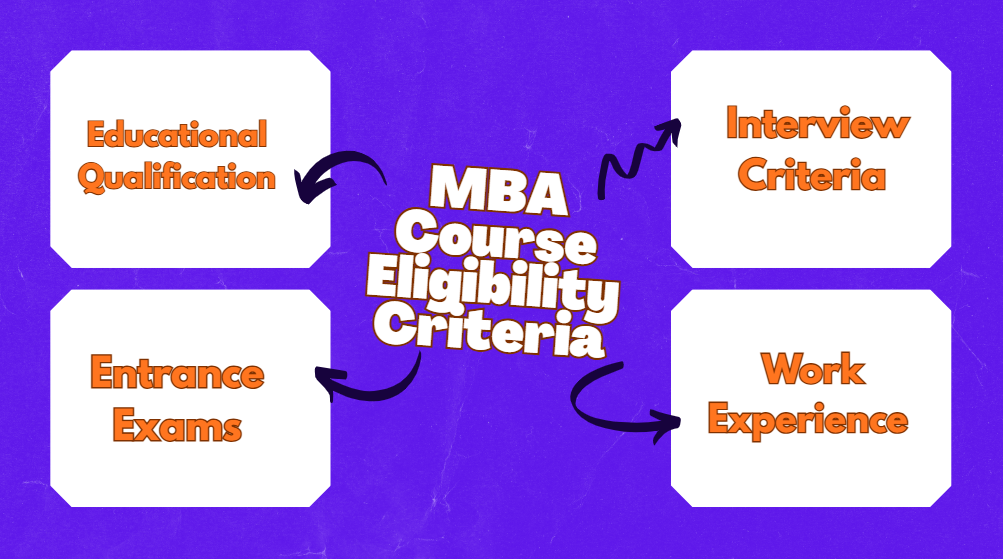MBA Syllabus 2025: The Master of Business Administration (MBA) is considered a top degree for advancing to managerial and leadership positions. In order to give candidates a deep comprehension of fundamental business competences and to cultivate essential managerial and entrepreneurial abilities, the extensive MBA curriculum is thoughtfully created. The two-year curriculum immerses students in critical functional areas that are necessary for managing a successful business. Human resource management (HRM), strategic marketing management, organizational behavior, detailed financial management, and business law principles are usually included in these foundational courses. It also emphasizes the development of important soft skills, like sophisticated communication and negotiation, frequently through case studies and real-world projects.
The MBA program's broad range of specializations, which enable students to customize their education to fit their career goals, is one of its main advantages. Options such as an MBA in Hospital Management or an MBA in Healthcare Management offer industry-focused skills for students aiming to target particular areas. By matching their academic concentration with their main interests and the needs of the global business environment, students can also opt for more conventional functional specialties like an MBA in Marketing, an MBA in Finance, or an MBA in Accounting, which will guarantee a stellar professional start.
MBA 1st Year Syllabus: Foundation Courses
The main goal of the first year of an MBA program is to build a solid foundation of fundamental management knowledge. Regardless of the student's selected specialization, it consists of required courses that are shared by all students and cover core topics like financial accounting, organizational theory, marketing principles, and statistical analysis.
MBA 1st Semester Subjects
| S. No. | Subject Name | Focus Area |
| 1 | Principles of Management | Foundational Management Theory & Practices |
| 2 | Organizational Behavior | Individual and Group Dynamics in the Workplace |
| 3 | Business Economics | Economic Principles Applied to Business Decisions |
| 4 | Accounting for Managers | Interpreting Financial Statements and Data |
| 5 | Business Communication | Professional Communication, Presentation, and Writing Skills |
| 6 | Marketing Management | Core Concepts of Product, Price, Place, and Promotion |
MBA 2nd Semester Subjects
| S. No. | Subject Name | Focus Area |
| 1 | Human Resource Management | Strategies for talent acquisition, retention, performance, and development. |
| 2 | Financial Management | Capital budgeting, working capital, risk analysis, and corporate finance. |
| 3 | Operations Management | Optimizing production, supply chain, process flow, and quality control. |
| 4 | Research Methodology | Design, tools, and statistical techniques for reliable business research. |
| 5 | Business Statistics | Application of quantitative and statistical methods for decision-making. |
| 6 | Corporate Social Responsibility (CSR) | Business ethics, corporate governance, sustainability, and legal compliance. |
Also Check:
-
Scored 450 marks in NEET 2025? Top Colleges in India for MBBS
-
BBA 1st Year Subjects 2025: Semester-Wise Subjects List & Syllabus
-
DAAD Scholarship 2025: Eligibility, Application and Registration Details Here
-
Top 10 Largest Colleges in Ahmedabad 2025: Courses, Eligibility & Admissions
-
Top Affordable MBA Colleges in India 2025: Fees, Ranking and Placements
-
Chevening Scholarship 2026: Eligibility, Benefits, Application Process & Important Details
MBA Course Eligibility Criteria and Admission 2025

Since MBA programs are postgraduate degrees, they all require a bachelor's degree. But fulfilling this prerequisite is just the beginning; the precise requirements for eligibility differ significantly depending on the kind of MBA and the institution's ranking tier.
Tier 2 and Tier 3 universities may provide more flexibility in terms of entrance exam cutoffs and work experience requirements, while Tier 1 universities, for example, usually require high entrance exam scores (such as CAT/GMAT) and substantial professional experience. As a result, applicants need to carefully review the particular requirements that their intended universities have imposed.
| Particulars | Tier 1 MBA Colleges | Tier 2 MBA Colleges | Tier 3 MBA Colleges |
|---|---|---|---|
| Educational Qualification | Should be greater than 50% IIMs and IITs require 60% for selection. | 50% or more | 50% or more |
| Entrance Exams | CAT, XAT, GMAT | SNAP, NMAT, XAT, TISSNET | MAT, CMAT, and other state-level or university-level exams |
| Interview Criteria | GD + WAT + PI | WAT + PI, In some cases, only PI is conducted. | Not WAT rounds, colleges conduct their own interview rounds to assess the personality. |
| Work Experience | Not Mandatory, is required in case of Executive MBA Admission. | Not Mandatory, but required for MBA executives in some colleges. | Not required |
Also Read:
Top IIT Colleges That Offer Data Science Courses to Learn Online in 2025
Best Pharmacy Colleges in India 2025 After 12th Offering High Job Placement
To stay updated on current trends, join the Jagran Josh Telegram Community!
